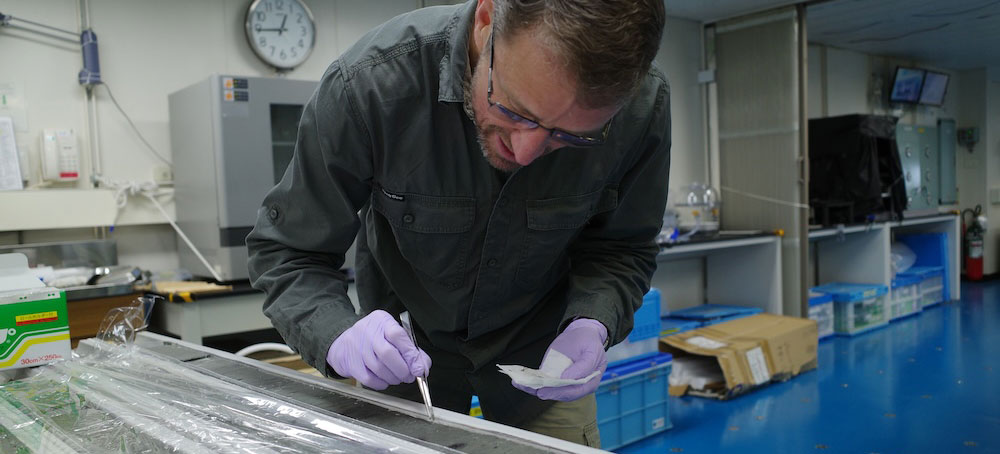Principles of Scientific Investigation

1
The International Ocean Drilling Programme (IODP3) is an international research collaboration that addresses important questions in Earth, ocean, environmental and life sciences based on drill cores, borehole imaging, observatory data, and related geophysical imaging obtained from beneath the ocean floor using specialised ocean-going drilling and research platforms, together with interdisciplinary analyses of legacy samples and data.
2
IODP3 collaboration is further elaborated in agreements that establish partnerships between platform providers and nations that help to fund the research platforms.
3
IODP3 investigations are based on research proposals that address the scientific vision expressed in the “2050 Science Framework: Exploring Earth by Scientific Ocean Drilling” or other outstanding new research ideas.
4
IODP3 proposals are reviewed by advisory panels composed of international representatives. The panels provide independent advice to IODP3 platform operators on science quality, feasibility, safety, and environmental issues. IODP3 proposals for scientific ocean drilling and legacy projects, including workshop proposals, are evaluated in a fair and unbiased manner that avoids conflicts of interests. The advisory panels are overseen by the IODP3 MSP Facility Board.
5
Decisions on the scheduling of expeditions are made by the IODP3 MSP Facility Board that provides operational and management oversight of the IODP3 drilling platforms, and that strives toward common IODP3 procedures and policies between Science Operators where practical and within the limits of resource availability.
6
The intellectual property of any scientific proposal submitted to the programme belongs to the proposal authors (proponents) until a proposal is scheduled for drilling as part of an IODP3 expedition. At that time, the programme acquires the right to publish the proposal and conduct the science. Every effort will be made by the programme to recognize the intellectual efforts of the proponents.
7
IODP3 expeditions will be undertaken by international teams of scientists selected by the platform operator in accordance with agreements between the participating nations that fund the research platforms. Staffing decisions will, as far as possible, take into account the intellectual contributions made by the original proponents and the goal of achieving diversity within the Expedition Science Team.
8
IODP3 expeditions are intended to have no significant environmental impact and are carried out in conformance with the highest accepted levels of environmental sensitivity as further explained in the IODP3 Environmental Principles.
9
IODP3 policies, procedures, recommendations, and minutes of meetings are openly available to the public within the limits of the programme’s confidentiality policies for proposals, samples, and data.
10
IODP3 will provide open access to all expedition samples and data once the members of the Expedition Science Team have had a reasonable opportunity to complete their initial studies within an established moratorium period (typically one year).
11
After the expiration of the data moratorium, the programme will publish a detailed account of all findings, core and borehole details, data acquired during the expedition, and make all samples and cores (working halves) available to any scientist with a sound scientific proposal and proven facilities to conduct the proposed science in accordance with the IODP3 Sample, Data, and Obligations Policy.